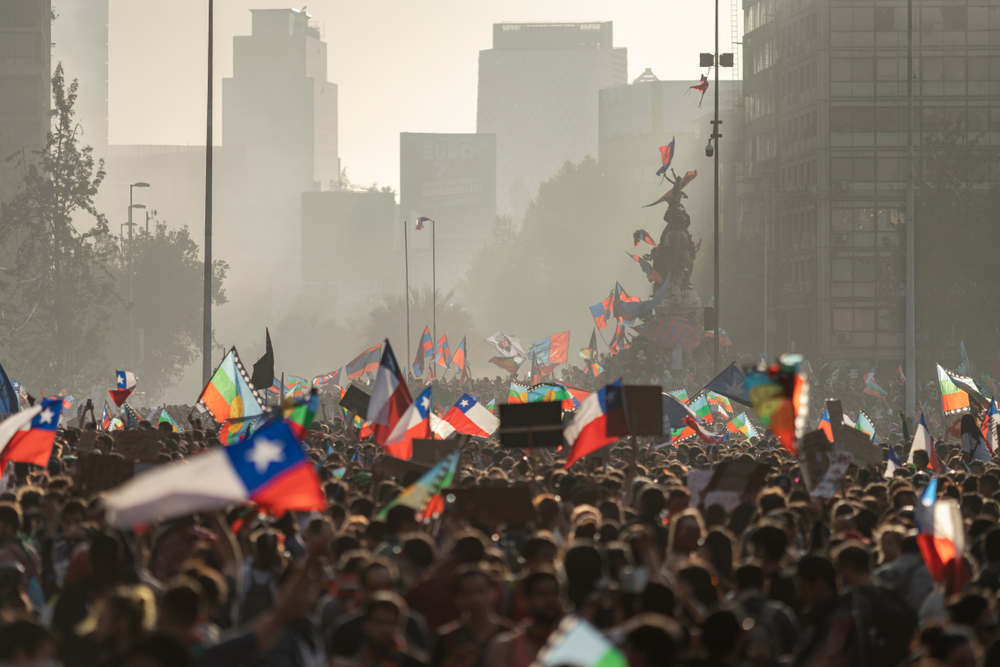The year 2019 will go down in history as a setback for democracies around the globe. Social unrest, protests, and rising inequality have worsened the quality of political systems globally, as underlined by the latest figures from The Economist Intelligence Unit’s annual Democracy Index, which showed the lowest average worldwide score since its inception in 2006. The index stood at 5.44 worldwide (on a scale of 0 to 10), mainly “driven by sharp regressions in the average regional scores in Latin America and Sub-Saharan Africa.”
Only three Latin American nations—Uruguay, Costa Rica, and Chile—were rated as “full democracies.” Meanwhile, three others, Nicaragua, Venezuela, and Cuba, went down as flat-out “authoritarian” states. Latin America as a whole saw its average score fall to 6.13—its fourth decrease in a row. However, it retained its place as the most democratic of emerging markets, sitting behind only Western Europe and North America.
Brazil, in turn, was classified as a “flawed democracy,” along with almost all of its immediate neighbors. Its final “democracy score” of 6.86 equals the country’s worst result since the index began.

Self-proclaimed presidents
While Brazil posted poor scores in “functioning of government” and “political culture,” the problems elsewhere in the continent are significantly more severe, defined by the region-wide wave of “self-declared leaders.”
This process picked up steam in...


 Search
Search






































